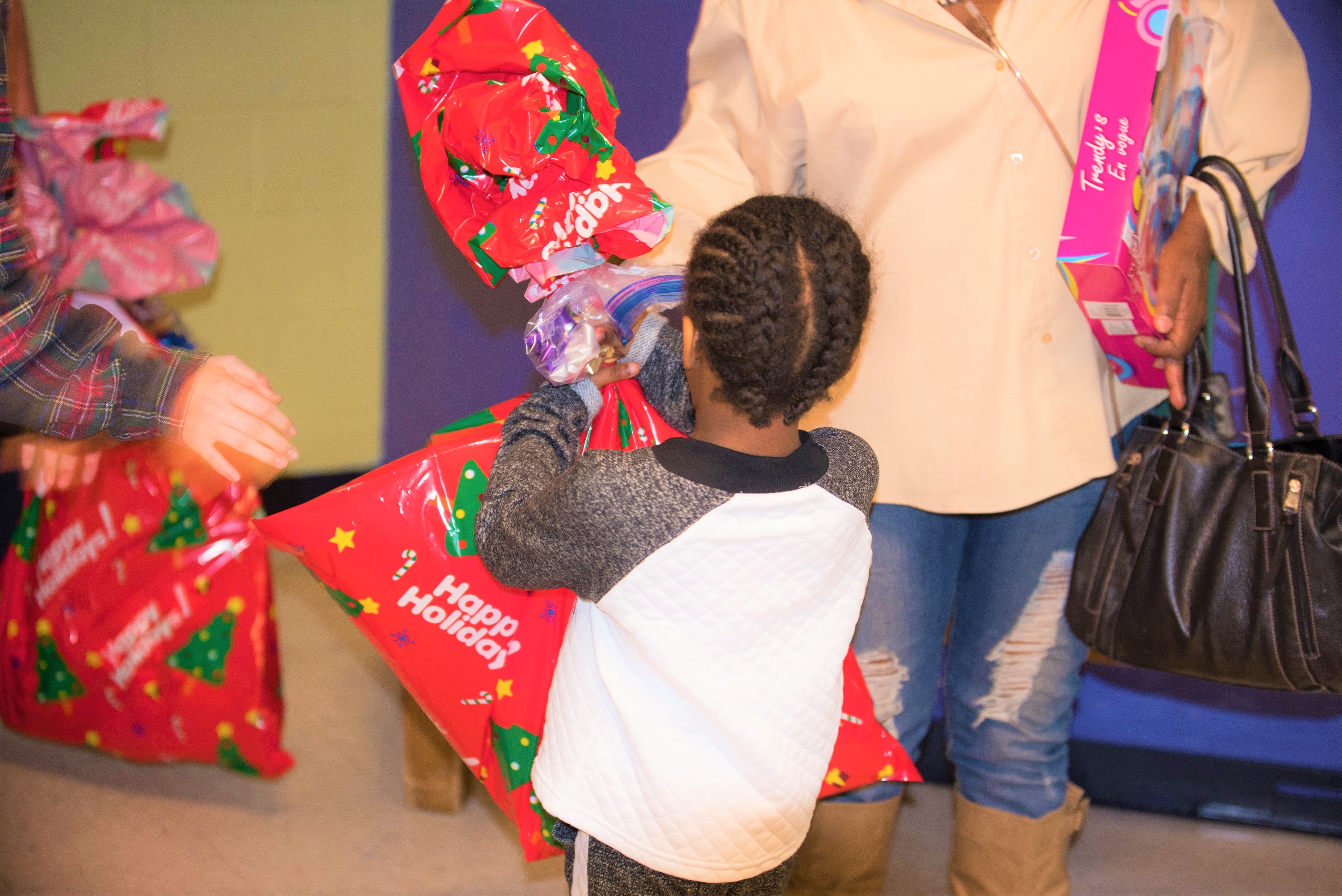
H.E.R.O. for Children: Caring for the “Heads and Hearts” of Children Affected by HIV/AIDS
H.E.R.O. for Children exists for the purpose of offering supports to children who either live with HIV/AIDS or have a relative affected by the chronic disease, whether living or deceased. It’s not an easy disease to live with, in part because HIV/AIDS still carries a stigma. Aside from the stigma, kids affected—even secondhand—by the disease, tend to have learning disabilities and other issues that, without intervention, can lead to high-risk behaviors and other problems that may keep children from succeeding in the classroom and in life.
Stepping in to help these children cope is H.E.R.O. for Children, with the H.E.R.O. part standing for “Hearts Everywhere Reaching Out.” Too little attention is given to children affected in one way or another by HIV/AIDS, and that is why we chose to help H.E.R.O. by way of our small grants program. We put some questions to H.E.R.O. for Children Match and Development Coordinator Nadia Eliacin to learn more about this work:
Varda Epstein: Can you tell us something about the children you serve? What demographic do you work with? How many children do you serve on an annual basis?
Nadia Eliacin: H.E.R.O. for Children currently impacts approximately 375 affected children with more than 250 volunteers annually. The majority of our target population served resides in the metropolitan Atlanta area; over 65% between Fulton and DeKalb counties alone. Approximately 33% of HERO children are living with HIV and the other 67% are affected (i.e. someone who has a parent, sibling, or residential relative living with HIV, or has lost a relative to HIV/AIDS-related complications). Approximately 25% of HERO children have lost a parent as a result of HIV/AIDS-related complications, and 90% come from low-income families (household incomes are $20,000/year or less). All programs are offered free of charge.
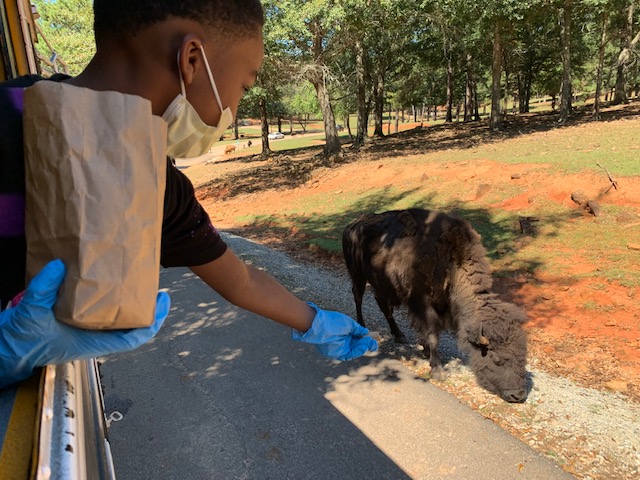
Varda Epstein: How and when did your organization get started?
Nadia Eliacin: Hearts Everywhere Reaching Out (H.E.R.O.) for Children, Inc. was founded in 2003 by two idealistic, young entrepreneurs who wanted to take their international experiences in Kenya and Brazil, working alongside children with HIV/AIDS, and create an organization for similar children in their home state of Georgia. Though there were 500 organizations in Georgia that supported people with HIV/AIDS at the time, none specifically focused on children. Even more alarming was the large void in quality of life care after food, housing, and medical needs were addressed. H.E.R.O. became the answer to fill that gap and provide programs focused on the “heads and hearts” of these special children.
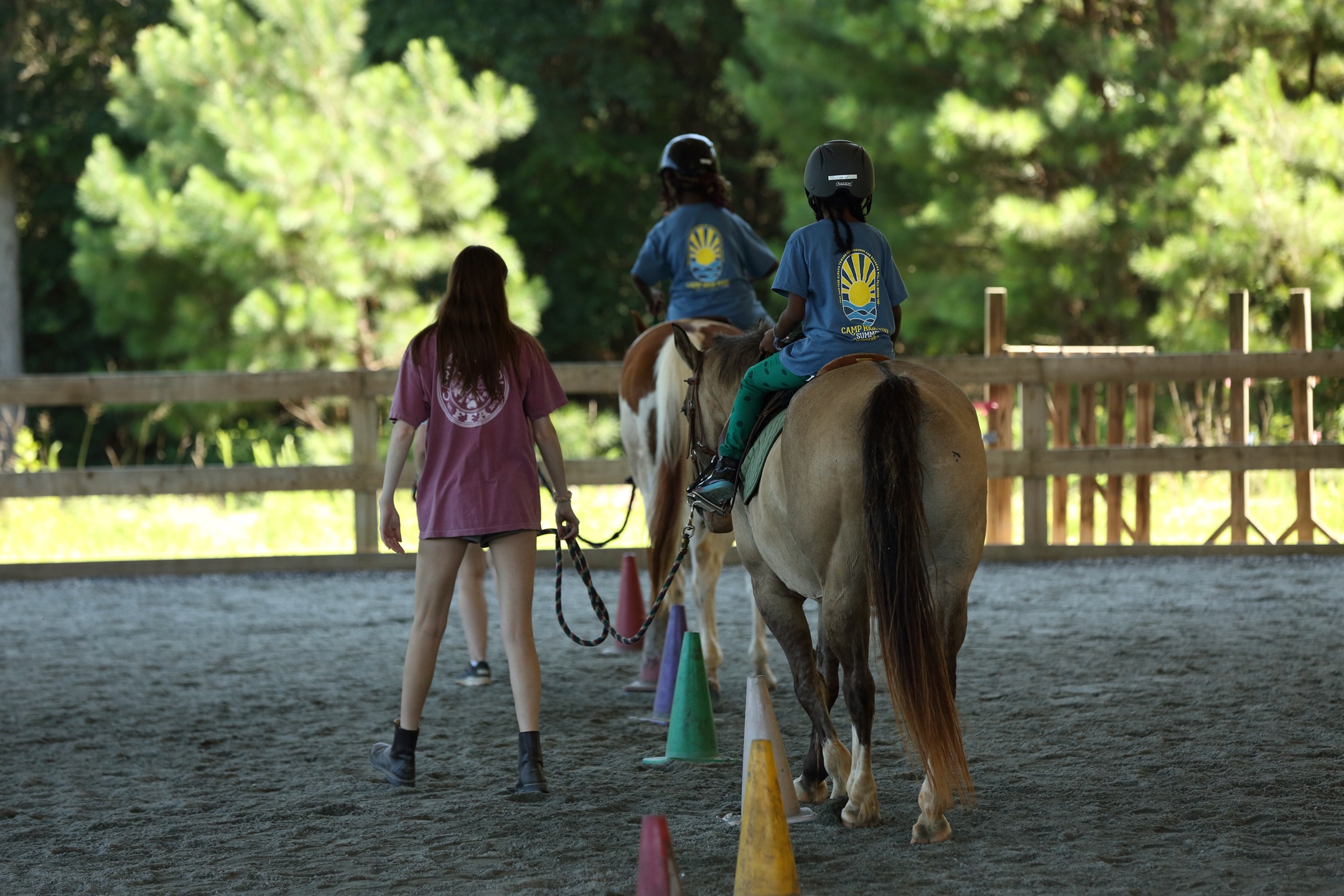
Varda Epstein: What are some of the issues encountered by children with HIV/AIDS?
Nadia Eliacin: HIV/AIDS is a chronic disease that has a multidimensional impact on individuals and families, especially on children and youth. It has:
- Emotional and behavioral consequences: The illness or loss of a parent interferes with the consistent love, care, discipline, and attention a child needs to have a healthy psychosocial development. The death of a parent has a particularly significant impact on the emotions of a child. They experience feelings of grief and loss. They also experience fear and anxiety because they do not know what is going to happen to them, and anger because their parent can no longer be with them. Some children even develop feelings of guilt, thinking they were responsible for what happened to their parent(s) or that they should have done something. All these feelings tend to affect the children’s behavior. They can become extremely aggressive or passive, affecting their social and academic performance. These emotional and behavioral problems also place the children and youth at greater risk of engaging in high-risk behaviors (sex, drugs, delinquency, etc.). It is important to note that several other behavioral and psychosocial problems have also been noted in children and youth who are themselves living with HIV/AIDS. These problems include hyperactivity, attention deficits, social withdrawal, and depression. In addition, cognitive deficits, learning disabilities, and developmental delays have been related to central nervous symptom dysfunction related to HIV/AIDS.
- Social consequences: The stigma related to HIV infection may lead to social isolation. Often, families do not disclose their HIV status to family members, including the children, and their community for fear that they and their children will be mistreated. This isolation prevents families from obtaining valuable social support during difficult times. On the other hand, when they do disclose, they often confront open or subtle forms of discrimination and maltreatment. Children are especially vulnerable to rejection and cruelty by friends, teachers, and relatives, all of which intensify their emotional distress.
- Financial consequences: The increased medical expenses linked to treatment of frequent illnesses, the inability of a parent to maintain a job due to the illness, or the death of a parent, all contribute to a decrease in family income. The reduction in family income directly affects the quality of life of children in terms of proper access to food, clothing, housing, and basic services like education and health.
All of these issues make these children and youth vulnerable and as mentioned previously, place them at greater risk of engaging in risky behaviors (sex/unprotected sex, delinquency, drugs), and dropping out of school, thus continuing their parent’s cycle of poverty and illness.
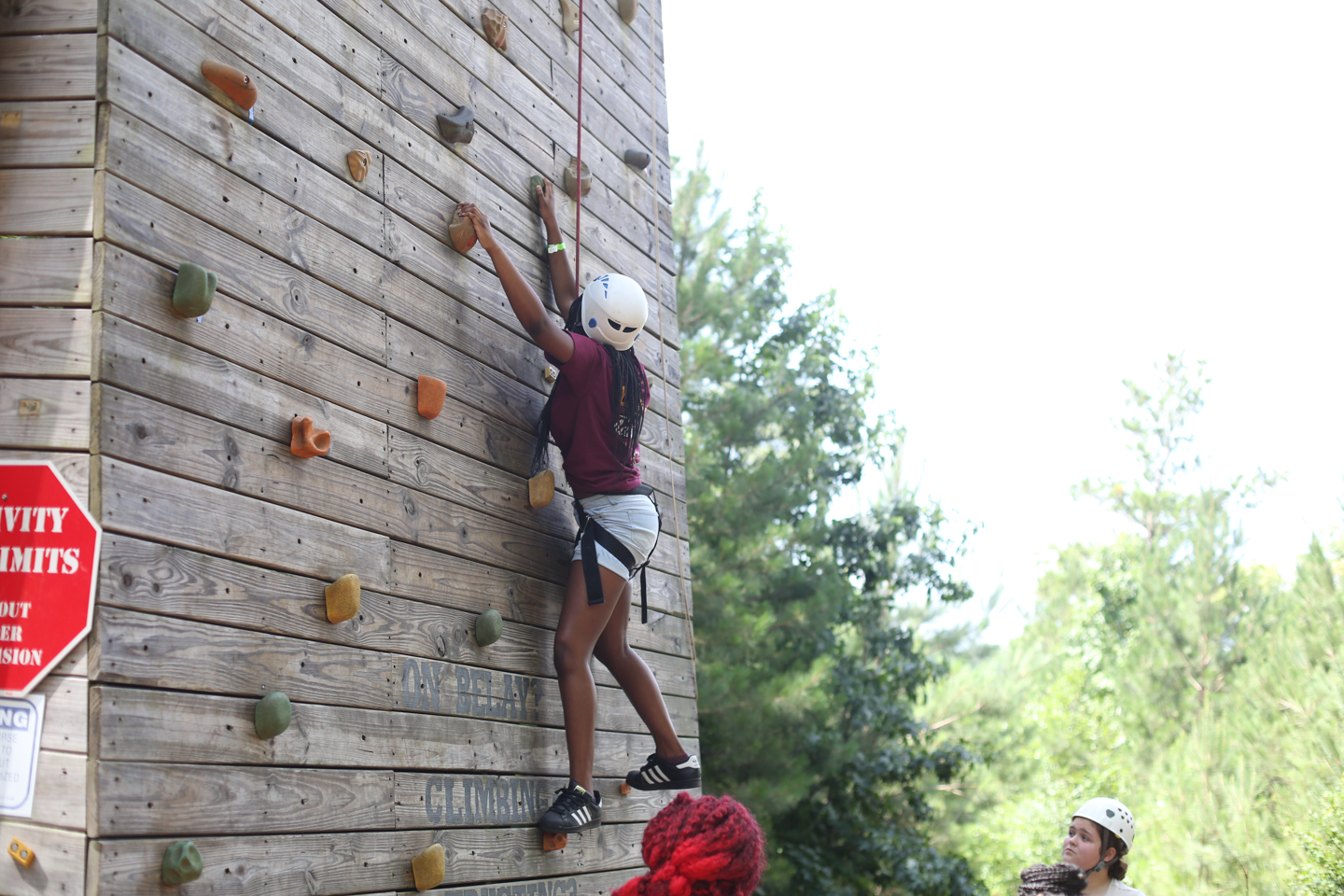
Varda Epstein: Tell us about your Super HEROes Mentoring Program. What issues do your mentors address that are specific to kids with HIV/AIDS?
Nadia Eliacin: Since 2004, the Super HEROes Mentoring program has provided one-on-one mentoring to children and youth affected by HIV/AIDS in the Atlanta area. This program endeavors to help improve the children’s cognitive skills, self-esteem, academic performance, social and communication skills, as well as their ability to set, pursue and accomplish goals by providing them with positive role models (mentors). Mentors commit to being positive additions to our children’s lives for a minimum of two years, and meeting with their mentees at least twice a month, two hours each time. Prior to acceptance into the program, it is critical that applicants are properly screened. Once their background reports clear, applicants attend a training session which provides a general overview of mentoring, as well as more specific guidance on how to address the specific needs of children affected by HIV/AIDS (i.e., how to help their mentees deal with grief and death, the anxiety associated with parents going in and out of the hospital, the importance of confidentiality, etc.). It also offers insight and recommendations in regards to practices that contribute to strong and effective mentoring relationships.
The program sponsors at least six recreational activities per year in order to strengthen the mentor-mentee relationship, as well as provide opportunities for children with similar backgrounds and circumstances to interact with one another and develop supportive friendships. With the support of their mentors and the organization, several of these children have successfully graduated from high school, and several have become the first in their families to matriculate to college. The Super HEROes Mentoring Program makes a great difference in the lives of these children. They need positive role models, nurturing friendships, good advice, and support in developing the life skills necessary to become happy, healthy, successful adults.

Varda Epstein: Your summer camp isn’t exclusively for children with HIV/AIDS. Who else benefits from attending Camp High Five? How does your summer camp differ from other summer camp programs?
Nadia Eliacin: Camp High Five is a week-long, residential, summer camp program that provides recreational and educational activities to children living with and affected by (i.e. someone who has a parent, sibling, or residential relative living with HIV, or has lost a relative to HIV/AIDS-related complications) HIV/AIDS. It is the only program of its kind in Georgia and serves youths between the ages of 6 and 16, the majority of whom come from low socioeconomic status. This program offers a wide range of recreational activities to these children- most of which they may not otherwise be able to afford and/or experience- including horseback riding, archery, fishing, boating, swimming, nature walks, and much, much more! While at camp, our children receive interventions that specifically address their HIV/AIDS-related needs. They participate in HIV Education sessions (which help improve medication adherence and safety practices), as well as an HIV Ceremony that acknowledges loved ones who have passed away as a result of HIV/AIDS-related complications. In addition, we collaborate with child psychologists from Grady Hospital’s Infectious Disease Program, who are on site most of the week, provide individual counseling sessions to the children, and address any psycho-social issues that emerge during camp. The Child Psychologists are able to continue services after camp, or offer appropriate referrals, as needed.
Adolescents are afforded opportunities to attain leadership training at Camp High Five. Our Counselor-in-Training component furnishes former campers with marketable skills, and supplies this organization with a pool of potential employees. Our current assistant camp director was once a camper, and our previous Camp Director is also a former program participant. In addition, we have hired part-time drivers/chaperones who ‘came up through the ranks’ of Camp High Five.
Improved medication adherence, enhanced knowledge regarding various aspects of managing life with HIV/AIDS, the development of supportive friendships with similarly affected children, leadership training and potential employment opportunities are among the many benefits a child experiences while attending Camp High Five.
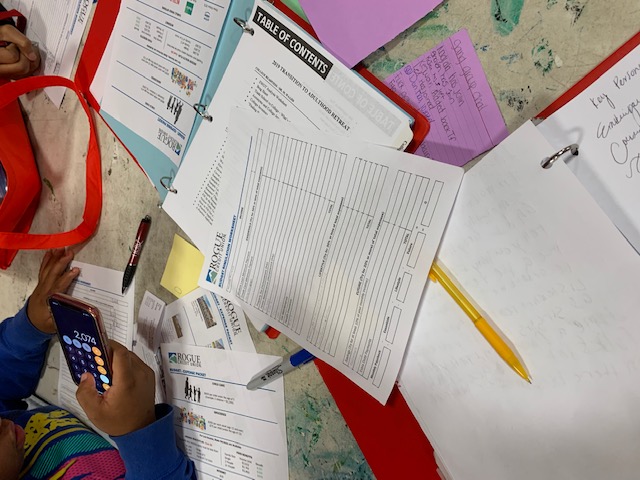
Varda Epstein: Can you give us an overview of Transition to Adulthood? What are the challenges confronted by adolescents affected directly or indirectly by HIV/AIDS?
Nadia Eliacin: After speaking with our children and their parents, and consulting with a child psychologist who works with children affected by HIV/AIDS and partner service providers, it became clear that our children lacked basic knowledge and skills regarding continued education/training and career planning. As a direct response to the identified needs of our clientele and data regarding effective remedies, the Transition to Adulthood program was designed in 2015.
The Transition to Adulthood (TTA) program endeavors to empower adolescents to matriculate to college or trade/technical school, secure rewarding employment and become productive members of society. Through a combination of diverse, year-round interventions, TTA participants will gain: 1) increased knowledge of college, financial aid, and career options; 2) enhanced awareness of college and/or trade school registration processes; 3) improved completion of key college and/or trade school enrollment tasks; 4) refined résumé writing abilities, and 5) augmented job interviewing and retention skills. Equipped with these tools, our clientele will be prepared to become independent, accomplished individuals who can then serve as role models for others with similar backgrounds, as well as future generations. Annual events consist of college tours, personal development workshops, professional site visits, a career fair, and a retreat. During the retreat, classes address topics including the college application process, academic scholarships, resume writing, interviewing skills, workplace etiquette, social media, financial literacy, trade certification, internships, and more.
Adolescents affected by HIV/AIDS are often subjected to the burden of 1) social stigmas – making socializing with co-workers (without risk of disclosure) problematic; 2) educational disadvantages, including lack of school enrollment and attendance, school completion, and educational attainment due to illness and/or family support; 3) reduction in family income, which directly influences their quality of education, and makes it difficult for them to afford a post-secondary education; and/or 4) lack of family support, as few have parents with educations beyond high school. Many of these adolescents lack basic knowledge and skills regarding continued education/training and career planning. The Transition to Adulthood Program helps our young adults address these specific issues and bridge such gaps.
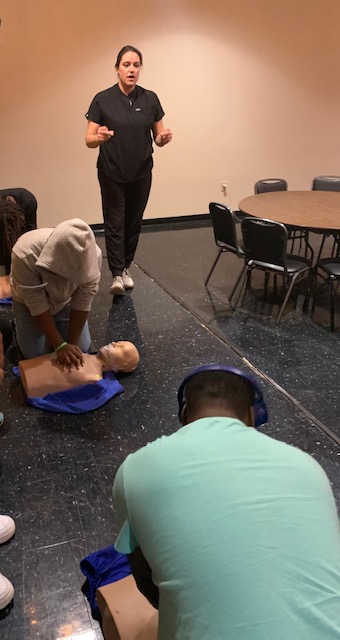
Varda Epstein: H.E.R.O. for Children has a scholarship program. What can you tell us about that?
Nadia Eliacin: Bright HEROs is our educational enrichment intervention that provides higher education and professional training scholarships, academic and professional development support (i.e. private tutoring, SAT preparation courses, art classes, school supplies, etc.), and volunteer employment stipends to our clientele.

Varda Epstein: Talk to us about Holiday of HEROS. What is this program and how does it work?
Nadia Eliacin: Holiday of HEROs is our annual outreach to provide children impacted by HIV/AIDS with at least one gift they need and one gift they want during the holiday season. Year after year, families tell us that if not for this program, they would not have any gifts to provide to their children for the holiday season.
Beginning in September, community partners and parents/guardians are asked to submit a Child Information Form by a set deadline; these forms are used to match children with presents. H.E.R.O. receives financial donations, in-kind gifts, and child sponsors to support this initiative. Sponsors agree to ‘adopt’ a set amount of children, shop for their gifts, and deliver them to the H.E.R.O. office or have them picked up. We then facilitate gift-wrapping parties where staff and volunteers prepare hundreds of gifts to distribute to the families. Gifts for children in partner cities are shipped, delivered, or collected from our headquarters. For our local Atlanta children, we host a holiday party where we distribute gifts to all of the families. At the party, H.E.R.O. children and their families have the opportunity to come out and enjoy fun, games, food, and live entertainment.
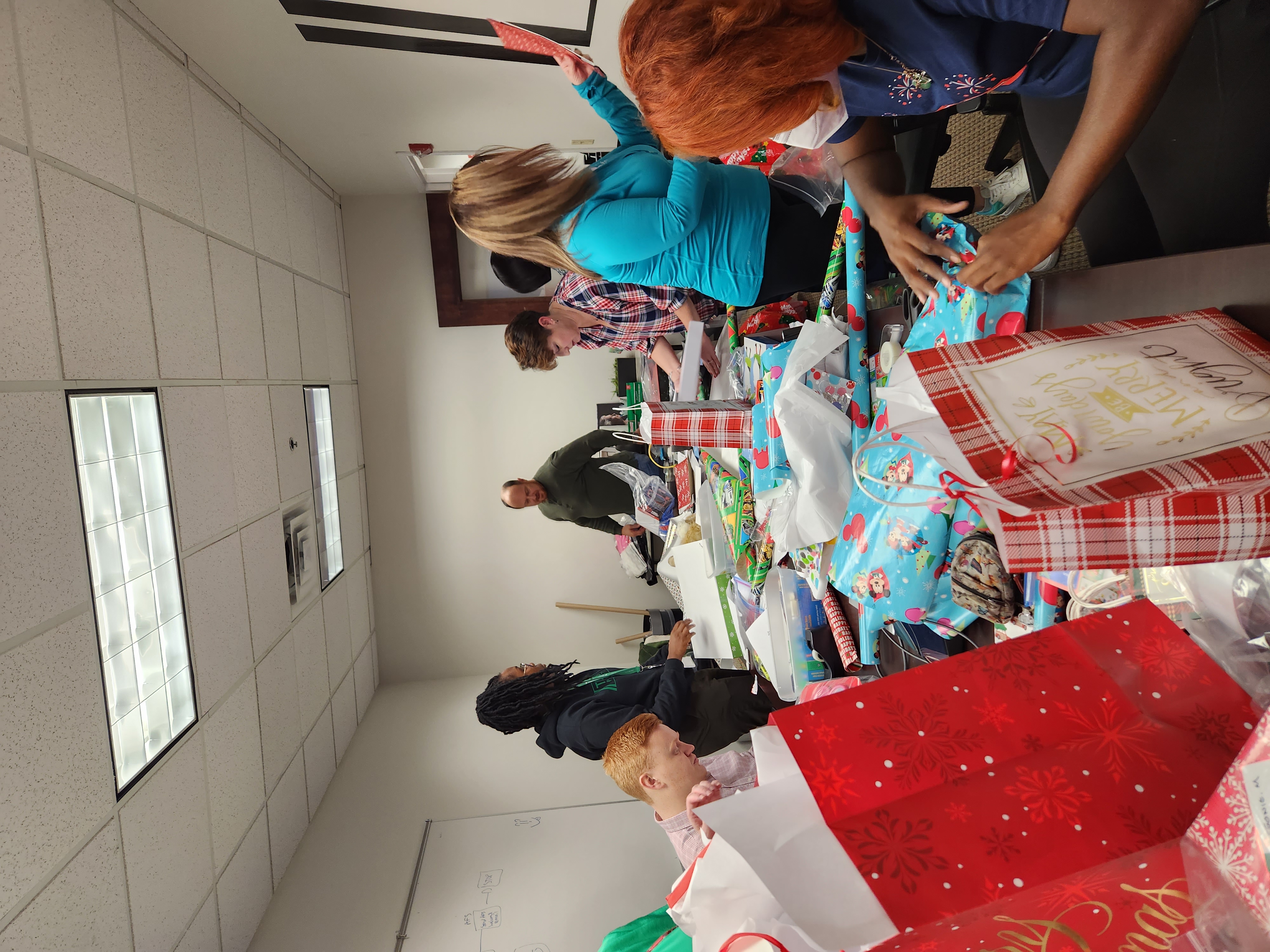
Varda Epstein: You have a Back-to-School “Bash.” Is this more than a school supply distribution? What’s it like?
Nadia Eliacin: As previously mentioned, many of our children come from low-income households. The inability of a parent to maintain a job due to illness, or the loss of a parent, contribute to a decrease in household income. Parents/guardians often lack the financial ability to pay for all of the necessary educational resources their children need to have a successful school year. In response, H.E.R.O. created our annual Back-to-School Bash, which supports and promotes the optimal academic performance of our children, under the umbrella of the Super HEROes Mentor Program. Just as with our holiday program, H.E.R.O. receives financial donations and in-kind gifts to support this initiative. This event helps motivate program participants for the new school year through an afternoon of food, fun, games, and prizes. At the end of the event, children receive backpacks filled with school supplies and clothing gift cards.
Varda Epstein: What’s next for H.E.R.O. for Children?
Nadia Eliacin: Overall, H.E.R.O. for Children’s goal is to serve more kids and young adults and expand our services. Specifically, we would like to invite children from other southeast states (states with the highest rates of HIV/AIDS in the US) to Camp High Five. We will also endeavor to expand Transition to Adulthood programming to include regular financial literacy education and develop internships for our clients. In addition, H.E.R.O. would like to create more opportunities for employment within our organization for program graduates. We strive to continue filling the needs of our community as it grows. H.E.R.O. has broken the Holiday of HEROs records each year, with 2023 numbers being our highest ever – 398 children served.